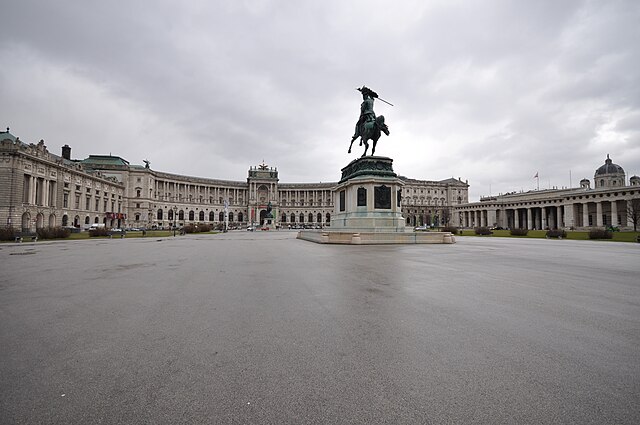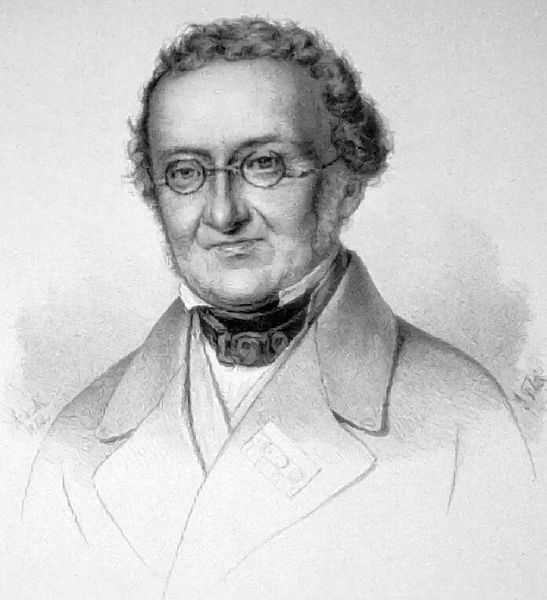Austrian nationalism is the nationalism that asserts that Austrians are a nation and promotes the cultural unity of Austrians. Austrian nationalism originally developed as a cultural nationalism that emphasized a Catholic religious identity. This in turn led to its opposition to unification with Protestant-majority Prussia, something that was perceived as a potential threat to the Catholic core of Austrian national identity. It was also used to protect the rule of the Habsburgs.
Heldenplatz (Heroes' Square) in Vienna with the statue of Archduke Charles of Austria in front of Hofburg Palace, Charles was Austria's main military leader who fought against France during the Napoleonic Wars.
Josef von Hormayr, the prominent Austrian nationalist political leader during the Napoleonic Wars.
Rally of the Fatherland's Front in 1936.
Austrians are the citizens and nationals of Austria. The English term Austrians was applied to the population of Habsburg Austria from the 17th or 18th century. Subsequently, during the 19th century, it referred to the citizens of the Empire of Austria (1804–1867), and from 1867 until 1918 to the citizens of Cisleithania. In the closest sense, the term Austria originally referred to the historical March of Austria, corresponding roughly to the Vienna Basin in what is today Lower Austria.
The first document containing the word "Ostarrîchi"; the word is marked with a red circle.
Growth of the Habsburg Monarchy
Chancellor Kurt Schuschnigg
Sign of the Austrian resistance movement at the Stephansdom in Vienna







